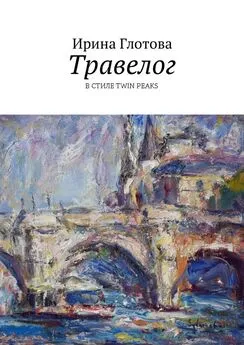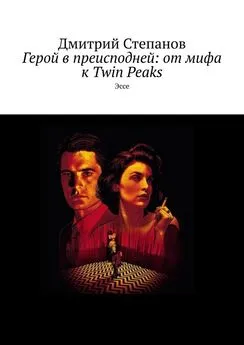Peake, Mervyn - 02 Gormenghast
- Название:02 Gormenghast
- Автор:
- Жанр:
- Издательство:неизвестно
- Год:неизвестен
- ISBN:нет данных
- Рейтинг:
- Избранное:Добавить в избранное
-
Отзывы:
-
Ваша оценка:
Peake, Mervyn - 02 Gormenghast краткое содержание
02 Gormenghast - читать онлайн бесплатно полную версию (весь текст целиком)
Интервал:
Закладка:
Whoever it was who was crawling towards him down the wall had presumably informed the world of his purpose, or had been given orders to come to grips. Someone had seen a movement in the ivy.
But it was strange that, as far as he could hear, there was only one boat approaching. The rise and fall of the two oars were distant but perfectly distinct; why was not the whole flotilla on its way towards him?
As he drew his knife to and fro across his forearm some dust fell through the twisted stems above him and then a branch broke with a crack that seemed within a yard of his head.
But it was not immediately above him, this noise. It appeared to come from deeper in the ivy, from somewhere between himself and the wall.
For him to move would be to make a sound. He was curled up like an emaciated child in a cot of twigs. But with his right hand gripping the dagger at his left shoulder, he was prepared at any instant to make an upward stab.
His small, close-set eyes smouldered with an unnatural concentration in the darkness, but it was not their natural colour, extraordinary as that was, that showed in the gloom, but something more terrible. It was as though the red blood in his brain, or behind his eyes, was reflected in the lenses. His lips, thin as a prude's, had fused into a single bloodless thread.
And now he began to experience again, but with even greater intensity, those sensations that affected him when, with the skeletons of the titled sisters at his feet, he had strutted about their relics as though in the grip of some primordial power.
This sensation was something so utterly alien to the frigid nature of his conscious brain that he had no means of understanding what was happening within him at this deeper level, far less of warding off the urge to 'show himself'. For an arrogant wave had entered him and drowned his brain in black, fantastic water.
His passion to remain in secret had gone. What was left of vigour in his body craved to strut and posture.
He no longer wanted to kill his foe in darkness and in silence. His lust was to stand naked upon the moonlit stage, with his arms stretched high, and his fingers spread, and with the warm fresh blood that soaked them sliding down his wrists, spiralling his arms and steaming in the cold night air - to suddenly drop his hands like talons to his breast and tear it open to expose a heart like a black vegetable - and then, upon the crest of self-exposure, and the sweet glory of wickedness, to create some gesture of supreme defiance, lewd and rare; and then with the towers of Gormenghast about him, cheat the castle of its jealous right and die of his own evil in the moonbeams.
There was nothing left, no, of the brain that would have scorned all this. The brilliant Steerpike had become a cloud of crimson. He wallowed in the dawn of the globe.
Ignoring all precautions, he wrenched the boughs about him, and every window heard the sound, as they cracked in the silence with reports like gunfire. The lenses of his eyes were like red-hot pinheads.
He tore away the thick ivy stems, and cleared a cave, within the masses of the foliage, stamping and descending with his feet until they found purchase a foot beneath the water. His left hand gripped a solid arm of the parasite, as hairy as a dog's leg.
The knife was ready for the strike. He had thrown back his head. In the darkness of the leaves above him he heard a sound. It was a kind of cry or gasp - and then, a great bush of branches fell in a crackling heap - fell, as it were, down the black chimney which Steerpike's sudden violence had created - fell with gathering speed with Titus riding upon its back.
As Titus fell he saw the two red points of light below him. He saw them through the tangle of the broken ivy.
Fear had a few moments earlier suddenly come to him, for his brain had cleared - as in a hot sky of continuous cloud, an area, no bigger than one's thumbnail will clear, and show the sky. And with this momentary clearance of his brain from the fumes of fever and fatigue, came the fear of Steerpike and darkness, and death.
But directly the branches broke below him as he hung in the twisted night, and directly he fell, the fear left him again. He said to himself, 'I am falling. I am moving very fast. I will soon be on top of him. Then I will kill him if I can.' The knife in his hand was quite steady as he fell: and when he crashed his way through the branches which had come to a thick and watery halt at the congested surface of the flood he saw it shine in his hand like a splinter of glass in a penetrating ray of the moon. But only for the fraction of a fleeting instant did he see that thin blade of steel for, as he had fallen he had been shovelled outwards into the moonlight so that suddenly another object as brilliant as the thin blade held his eyes, a thing with eyes like beads of blood, and a forehead like a ball of lard - a thing whose mouth, thin as a thread, was opening and as it opened was curling up its corners so that no other note could possibly have come from such a cavity as the note that now rang across the flood-bay that climbed the ancient walls and turned the silent audience to stone - a note from the first dawn, the high-pitched overweening cry of a fighting cock.
But even as this blast of arrogance vibrated through the night, and the crowing echoes rang through the hollow rooms and wandered to and fro, and thinly died - Titus struck.
He could see nothing of the body into which his small knife plunged. Only the head, with its distended mouth and its grizzly blood-lit eyes, was visible. But he struck the darkness under the head, and his fist was suddenly wet and warm.
What had happened to Steerpike that he should have been the first to receive a blow - and a blow so mortal? He had recognized the earl, who like himself had been lit by the moonbeams. That the Lord of Gormenghast should have been delivered into his hands at this great moment and be his for the killing, had so appealed to his sense of fitness that the urge to crow had become irresistible.
He had swung full circle. He had given himself up to the crowding forces. He, the rationalist, the self-contained!
And so, in a paroxysm of self-indulgence - or perhaps in the grip of some elemental agency over which he had no power, he had denied his brain, and he had lost the one and only moment of time in which to strike before his enemy.
But at the rip of the knife in his chest all vision left him. He was again Steerpike. He was Steerpike wounded, and bleeding fast, but not yet dead. Snarling with pain he stabbed, but as he stabbed Titus fell in a faint and the knife cut a path across the cheek - not deep but long and bloody. The sharp pain of it cleared the boy's mind for a fraction of time and he thrust again into the darkness below his face. The world began to spin and he was spinning with it and he heard again, very far away the sound of crowing, and then opening his eyes he saw his fist at his enemy's breast. for the lozenge of moonlight had spread across them both, and he knew that he had no strength to withdraw the knife from between the ribs of a body arched like a bow, in the thick leaves. Then Titus stared at the face, as a child who cannot tell the time will stare at the face of a clock in wonder and perplexity, for it was nothing any more - it was just a thing, narrow and pale, with an open mouth and small, lacklustre eyes. They were turned up.
Steerpike was dead.
When Titus saw that this was indeed so, he collapsed at the knees and then slumped forward out of the ivy and fell face downwards into the open water. At once a cry broke out from a hundred watchers, and his mother, framed by the window overhead, leaned forward and her lips moved a little as she stared down at her son.
She and the watchers from the windows all about her and above her had, of course, seen nothing but the commotion of the ivy leaves at the foot of the wall. Titus had disappeared from the air and had burrowed into the thick and glossy growth, its every heart-shaped leaf had glinted in the moon-light. For long seconds at a time the agitation of the leaves had ceased. And then they had begun again, until suddenly they had seen a fresh disturbance and realized that there were two figures under the ivy.
And when Steerpike had thrown his secrecy away and when Titus had fallen through the chimney of leaves, and while they had exchanged blows, the sound of their struggle and the breaking of branches and the splash and gurgle of the water as their legs moved under the surface - all these noises had sounded across the bay with peculiar clarity. The flotillas, in the meantime, unheard by the protagonists, had once again advanced upon the castle and were now very close to the wall. The captains had expected fresh orders on arriving beneath the walls, but the Countess, immobile in the moonlight, filled up her window like a carving, her hand on the sill, her gaze directed downwards, with motionless concentration. But it was the cry of the cock, triumphant, terrible, that broke the atrophy and when, a little later, Titus fell forward out of the ivy and the blood from his cheek darkened the water about his head, she sent forth a great cry, thinking him dead, and she beat her fist upon the stone sill.
A dozen boats lunged forward to lift his body from the flood, but the boat which had been the first to leave the flotilla some while earlier and whose oars both Titus and Steerpike had heard was in advance of the rest, and was soon alongside the body. Titus was lifted aboard, but directly he had been laid at the bottom of the boat, he startled the awe-struck audience by rising, as it seemed, from the dead, for he stood up, and pointing to that part of the wall from which he had fallen, he ordered the boatmen to pull in.
For a moment the men hesitated, glancing up at the Countess, but they received no help from her. A kind of beauty had taken possession of her big, blunt features. That look which she reserved, unknowingly, for a bird with a broken wing, or a thirsty animal, was now bent upon the scene below her. The ice had been melted out of her eyes.
She turned to those behind her in the room. 'Go away.' she said. 'There are other rooms.'
When she turned back she saw that her son was standing in the bows, and that he was looking up at her. One side of his face was wet with blood. His eyes shone strangely. It seemed that he wished to be sure that she was there above him and was able to see exactly what was happening. For as the body of Steerpike was hauled aboard by the boatmen, he glanced at it and then at her again before a black faint overtook him and his mother's face whirled in an arc, and he fell forward into the boat as though into a trench of darkness.
SEVENTY-NINE
There was no more rain. The washed air was indescribably sweet. A kind of natural peace, almost a thing of the mind, a kind of reverie, descended upon Gormenghast - descended, it seemed, with the sunbeams by day, and the moonbeams after dark.
By infinitesimal degrees, moment by golden moment, hour by hour, day by day, and month by month the great flood-waters fell. The extensive roofscapes, the slates and stony uplands, the long and slanting sky-fields, and the sloping altitudes, dried out in the sun. It shone every day, turning the waters, that were once so grey and grim, into a smooth and slumbering expanse over whose blue depths the white clouds floated idly.
But 'within' the castle, as the flood subsided and the water drained away from the upper levels, it could be seen how great was the destruction that the flood had caused. Beyond the windows the water lay innocently, basking, as though butter would not melt in its soft blue mouth, but at the same time the filthy slime lay a foot deep across great tracts of storeys newly drained. Foul rivulets of water oozed out of windows. From the floors lately submerged the tops of objects began to appear and all was covered with grey slime. It began to be apparent that the shovelling away of the accumulated sediment, the swilling and scouring of the castle, when at long last, if ever, it stood on dry land again, would stretch away into the future.
Читать дальшеИнтервал:
Закладка:



